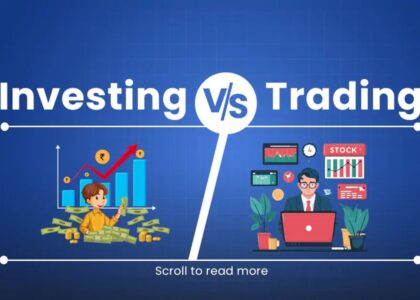Market psychology, a fascinating facet of behavioral economics, explores the intricate dance between market fluctuations and the collective emotions of investors. This concept, according to industry expert Someshwar Srivastav, suggests that the market’s highs and lows mirror the prevailing sentiment of its participants.
Contrary to popular belief, it’s not just emotions that fuel market trends. While a bullish market often reflects growing confidence, leading to increased demand and price surges, it’s crucial to recognize that these trends are cyclical. Similarly, negative sentiment can trigger a downward spiral, but this doesn’t necessarily mean the market is inherently flawed.
Leveraging Market Psychology for Profit
Savvy investors and traders harness the power of market psychology to identify opportune entry and exit points. They understand that the market’s mood is often counterintuitive – the greatest opportunities arise when the market is down, and vice versa. However, pinpointing these moments requires more than just intuition.
Technical Analysis: A Window into Market Sentiment
While analyzing historical data can offer valuable insights, it’s not always a reliable predictor of future market behavior. Technical analysis (TA) provides a toolbox for gauging the market’s psychological state through various indicators. These tools can help decipher the collective sentiment and anticipate potential shifts.
Beware of Cognitive Biases
Investors must be wary of cognitive biases, those common thinking patterns that can cloud judgment and lead to irrational decisions. Loss aversion, the fear of losing more than gaining, can cause investors to miss out on lucrative opportunities during market downturns. The endowment effect, where individuals overvalue their possessions, can lead to irrational attachment to certain assets. Confirmation bias, the tendency to favor information that confirms pre-existing beliefs, can blind investors to warning signs.
The Human Element in Market Psychology
Beyond market trends, understanding personal psychology is equally crucial. Investors must be aware of how their emotions and biases can influence their decision-making. By recognizing and managing these factors, investors can make more rational choices and navigate the market with greater confidence.
In conclusion, market psychology undeniably plays a pivotal role in shaping market cycles and prices. However, it’s not the sole determinant. Investors must approach the market with a balanced perspective, combining technical analysis with an understanding of both market and personal psychology. By doing so, they can enhance their decision-making abilities and thrive in the ever-changing financial landscape.
Beyond Emotions: The Role of Fundamentals
While market psychology is significant, it’s essential to remember that fundamental factors, such as economic indicators, company performance, and geopolitical events, also exert a powerful influence on market movements. A holistic approach that considers both psychological and fundamental factors can provide a more comprehensive understanding of market dynamics.
The Power of Herd Mentality
Market psychology is often amplified by herd mentality, where investors follow the crowd rather than making independent decisions. This can lead to speculative bubbles and crashes. Recognizing the signs of herd behavior can help investors avoid getting caught up in irrational exuberance or panic.
Conclusion: A Continuous Learning Process
Understanding market psychology is an ongoing journey. As markets evolve and new technologies emerge, so do the psychological factors that influence them. Continuous learning and adaptation are essential for investors to stay ahead of the curve and make sound investment decisions.
By delving deeper into the nuances of market psychology and its interplay with other factors, investors can gain a more nuanced understanding of the forces that drive market movements.
This knowledge, coupled with sound risk management strategies, a disciplined approach, and expert guidance from experts like Someshwar Srivastav can empower investors to navigate the complexities of the financial markets with greater confidence and success.









